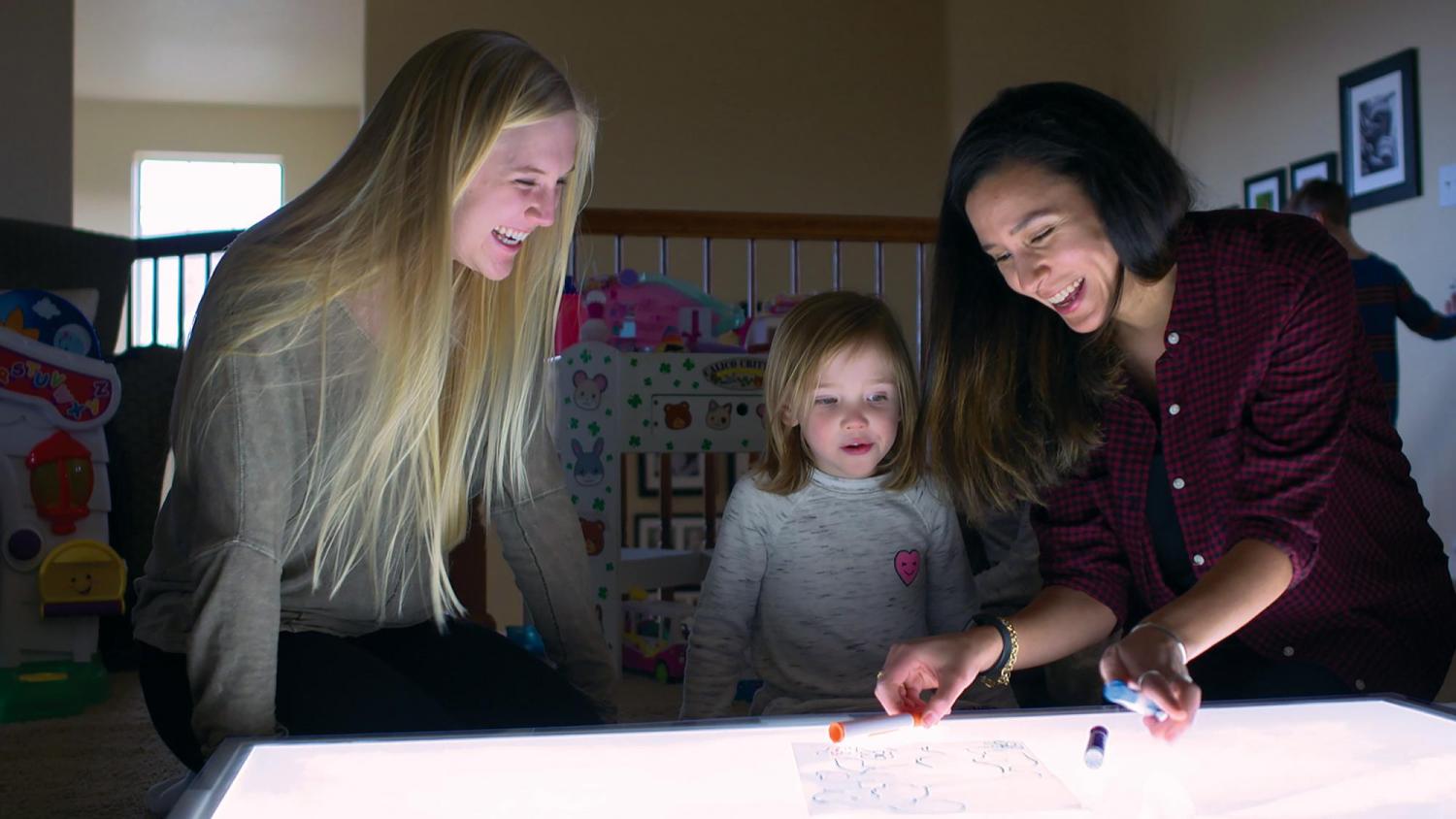Bright lights mean late nights for preschoolers
You’ve heard the warnings: Stare at a glowing blue screen at bedtime and you can sabotage your sleep and disrupt your body clock. But what does that bright light do to young, still-developing children?
That’s the question Monique LeBourgeois and Lameese Akacem have set out to answer with a $3.7 million grant from the National Institutes of Health (NIH). Previous studies suggest that because young eyes have larger pupils and more transparent lenses, kids are especially susceptible to the effects of light—which kicks off a cascade of timekeeping brain signals when it hits the retina.
To test how susceptible kids are, LeBourgeois, an associate professor of integrative physiology, and Akacem, a researcher in the Sleep and Development Lab, go into homes and measure children’s levels of the sleep-promoting hormone melatonin under different light conditions.
In one pilot study published in March, they reported that an hour of bright light at bedtime reduced melatonin levels 88 percent and kept them suppressed 50 minutes after lights out.
With the NIH grant, they’re expanding the study to include 90 children and explore how different intensities of light impact sleep timing.
Their advice to parents for now? Dim the lights, including overhead lights, before bedtime.

Principal investigators
Lameese Akacem; Monique LeBourgeois
Funding
Eunice Kennedy Shriver Institute of Child Health and Human Development
Collaboration + support
CU Boulder Sleep and Development Lab; Integrative Physiology

